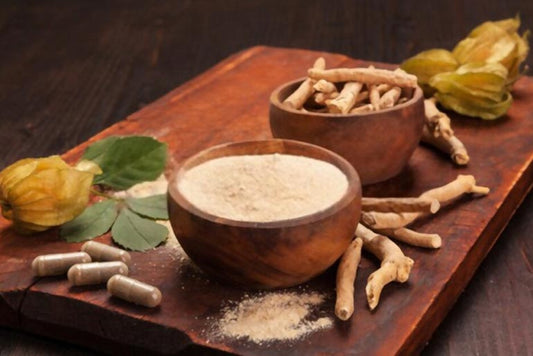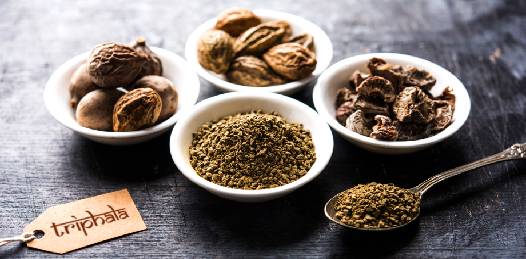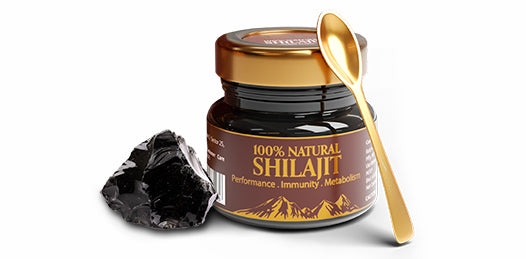

Highlights:
Diwali holidays are gone, and we are slowly finishing the festive sweets and savouries. As we are getting back to our daily routine, most of you must have experienced lethargy, lack of energy or rather unmotivated. Some digestive problems are also very common at this time. Let's dig into the root cause of these problems and find solutions with Ayurveda!
Digestion and Gut health:
According to Ayurveda, Agni(the digestive fire) in the body is indispensable for proper digestion and metabolism. This Agni present in the stomach region is hot and helps to secrete the enzymes necessary for digestion. There are three types of Agni according to which the body process food. With normal Agni, the digestive system turns the complex food particles into nutritive essence and waste matter. The waste matter is expelled as urine, faeces and sweat, and on the other hand, the essence of food is absorbed to form different tissues.
According to Ayurveda, lack of energy, lack of interest, feeling unmotivated, lethargy, and laziness could also be due to indigestion.
Indigestion and its types:
Indigestion is a result of irregular Agni. When the digestive fire is extremely high, low or irregular, it leads to indigestion. Three variations of Agni that causes indigestion, as explained in Ayurveda, are:
- Mangadni or Dull digestion: The term "manda" in Sanskrit means dull. Here, the Agni is low and is not enough to digest the food. The problem happens when you consume a lot of food when you have a minimal appetite. The symptoms of Mandagni is very evident as you may feel a loss of appetite, anorexia, and dislike towards food. Mandagni is due to aggravation of kapha dosha.
- Teekshnagni or Sharp digestion: "Teekshna" means sharp or penetrating in nature. In this type, the Agni is so high that it is very sharp and is penetrative. The symptoms of Teekshanagni is very evident as the person may feel hungry even after having food, high appetite, food craving and are unable to reach a point of satiation after eating. There might also be a feeling of burning sensation inside the stomach. Pitta is the predominant dosha in this condition.
- Vishamagni or Erratic digestion: The word "Vishama" means irregular or erratic in nature. In this type of indigestion, the appetite becomes so unstable that the person might feel hungry at odd times. Not feeling hungry at regular food time is also a sign of indigestion. It is said to have the predominance of vata dosha.
To conclude, you may have one or more symptoms when you have indigestion:
- Not feeling hungry during regular mealtime
- Loss of appetite
- Very high appetite
- Excess salivation
- Nausea or vomiting
- Anorexia - Loss of taste
- Discomfort in the abdomen
- Passing of wind
- Burps with the smell of food
- Bad breath
- Diarrhea or constipation
- Excessive thirst
- Bloating
- Acidity or heartburn
- Feeling full too soon after a meal
- Unusual weight gain or weight loss
- Rashes or acne in the skin
What causes indigestion?

Ayurveda also explains the reasons or factors contributing to indigestion
- Excessive intake of water before or after food.
- Overeating, especially sweet, oily and heavy food.
- Excessive intake of alcohol.
- Irregular food timings, skipping meals.
- Intake of contaminated or stale food and drinks.
- Sleeping immediately after having food.
- Day sleep
- Being awake in the nights
- Suppression of natural urges, especially suppressing the urge to vomit, defecate, hunger and thirst.
- Psychological factors like fear, anger, jealousy, pain, anxiety and depression can also lead to indigestion.
What happens when you don't treat indigestion?
Ignoring the symptoms might look easy, mainly when it is mild. But the long term effect of indigestion can cost your life.
- Toxins in the body: Long term indigestion can lead to the accumulation of toxins in the body that doesn't get cured on their own. You might have to undergo some Panchakarma (Ayurvedic detoxification procedures) to get rid of the problem.
- GERD / Ulcers: While it looks easy to pop some antacids or soda to subside acid reflux, it may prove to be a dangerous short term fix. The concentrated acid in the stomach may regurgitate, causing a severe burning sensation, sour taste in the mouth and ulcers in the stomach and inner walls of the mouth. The acid that comes into the mouth has a corrosive action on the teeth as well.
- IBS(Irritable Bowel Syndrome): Recurrent loose motions and constipation can lead to IBS/ IBD leading to nutritional deficiencies, weight loss and low immunity.
- Chron's Disease: Ulcerative colitis is also a result of prolonged indigestion in the body due to irritation in the large intestine.
Now that you know how to identify indigestion and its causes, here are some remedies that can bring your fire back to normal.
Home remedies for indigestion and gas:

- Mix 1/2 tsp of ginger and lemon juice with a pinch of rock salt. Take this 15 mins before meals to improve appetite and promote digestion.
- Drinking a glass of buttermilk with cumin seed powder relieves acidity.
- Having CCF tea made of Coriander, cumin and Fennel also helps in improving digestion.
- Yoga for digestion: Performing vajrasan and pawanamuktasan helps in improving digestion.
- Chewing food well before ingesting helps the food particles mix well with saliva. The enzymes in the saliva promote the digestion of starch right from the oral cavity.
- Eating slowly, mindfully and without distraction helps.
- Healthy lifestyle habits like early dinner, taking a stroll before dinner and drinking enough water improves gut health.
Ayurvedic herbs for indigestion:
- Ginger - Both fresh and dry ginger help improve the appetite and promote digestion. Add ginger to soups and curries. Soak small pieces of ginger in rock salt solution and take 30 minutes before mealtime.
- Pepper - Pepper is hot in potency and can increase appetite. Pepper can also help in the elimination of accumulated feces from the colon, thereby relieving constipation. Avoid pepper if you have heartburn or acidity.
- Cumin - Cumin is a very soothing herb for the stomach and promotes digestion. Cumin also detoxifies the indigested contents from the alimentary tract. Water boiled with some cumin seeds can be used for drinking throughout the day if you are suffering from indigestion.
- Coriander - Coriander seeds and leaves are used as a digestive spice. All parts of Coriander are soothing for the gut and decrease pitta. Hence Coriander infused water, tea, or any preparation solves acidity and heartburn.
- Asafetida - Asafetida is a sharp and penetrating herb. It is known to reduce vata in the digestive tract. Asafetida also helps relieve bloating and constipation. Fry this spice in ghee to reduce its sharpness.
What to eat during indigestion?
An easily digestible diet is recommended when you have indigestion or recovering from it. Ayurveda suggests starting with a liquid diet and then slowly moving to solids.
- The liquid portion of mung dal soup is added with pepper, ginger, cumin, and Coriander and taken for one or two meals.
- The starch water obtained after boiling rice added with salt is also a good option for indigestion and dehydration.
- Then one can switch to porridge or khichri with rice and mung dal. Some easy to digest vegetables like gourds, squashes and spices can be taken with the onset of appetite.
- The next meal can be rice and mung bean porridge with some boiled vegetables as sides.
- Chicken or meat soup with spices can be taken only when the appetite is restored.
Things to avoid in your Ayurvedic diet to cure indigestion:
- All types of fried food, including papad, has to be avoided
- Pickles and fruit preserves
- All baked food and confectionaries
- Heavy non-vegetarian food, cheese, cream and cottage cheese
- Heavy to digest pulses like Black gram, kidney bean and chickpeas
- Raw vegetable salads and curd
The above measure and remedies will be helpful to know how to keep gut healthy. Ayurveda says good health is a result of good digestion. That does not stand only for physical health but your mental wellbeing as well.











